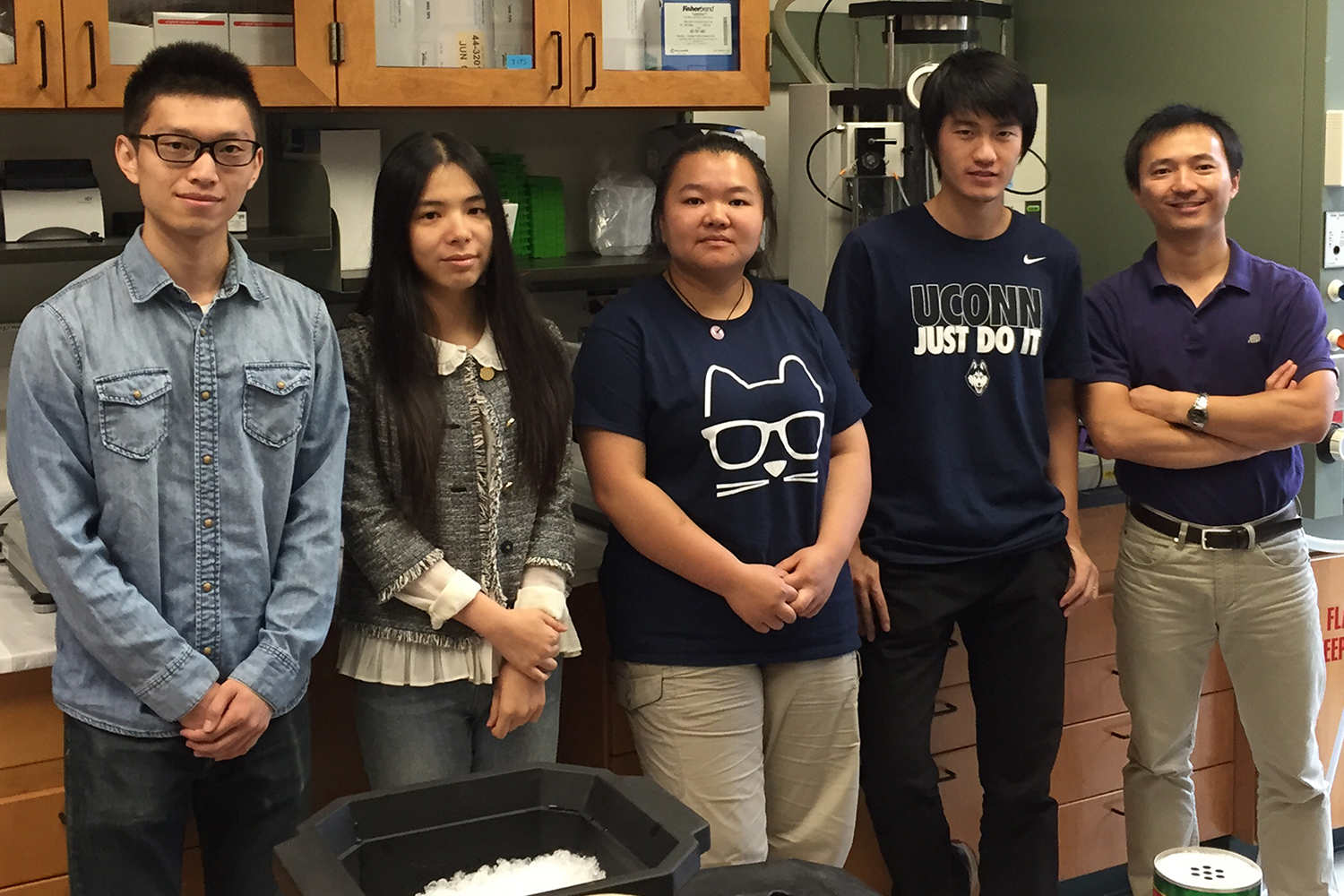Yangchao Luo’s passion is food. At home, Luo likes to cook Chinese food and tasty soups for his toddler daughter. In his lab at UConn, where he holds his primary appointment as assistant professor in the Department of Nutritional Sciences and joint appointments in the Department of Pharmaceutical Sciences and the Institute of Materials Sciences, he focuses on groundbreaking work in the emerging science of nanotechnology as applied to food. He wants to make healthy food healthier for individuals with special needs as well as for the rest of us. Luo became interested in functional foods as an undergraduate, and his interest grew as he worked toward his MS in food science and Ph.D. in nutrition and food science.
When foods are fortified or enriched, they become functional foods. But the biological efficacy of nutrients in functional foods is hardly realized due to limited bioavailability when the foods are ingested. Bioavailability is the proportion of a nutrient absorbed and therefore able to produce a particular effect. Many nutrients, such as vitamins and phytochemicals, are known to have a low bioavailability. The major goal of research in Luo’s laboratory is to use nanotechnology to improve the bioavailability of those nutrients and eventually help treat and prevent chronic diseases when they are put back into food. Luo uses food-grade biomaterials, including proteins, carbohydrates and lipids, to create non-toxic nanoscale vehicles that can carry nutrients and boost their absorption, making them more bioavailable.



